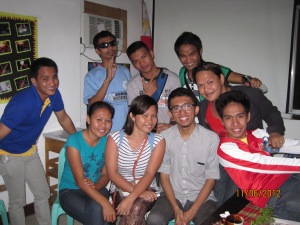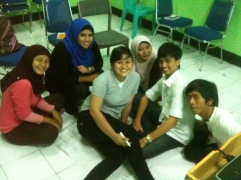On last June, YSNAP got a chance to learn from Family Planning Organization of the Philippines about youth mobilisation. Philippines is one of the country where young people and particularly young people in SRHR movement involve meaningfully.
We were visiting three of FPOP’s chapters; Iloilo, GenSan, and Tandang Sora and met a lot of dynamic young people!
Outreach activity by FPOP Iloilo chapter
The youth network in Gensan chapter where young people from different activism has worked together to raise awareness about HIV and AIDS.
Two dynamics young people in GenSan, Marie and Fitz who facilitated session on youth’s sexuality.
In the mid of our visit, we were having a dinner with some youth advocates in Manila. They shared a lot to us their experience working with youth’s SRHR and Reproductive Health Bill that has not yet been passed by Congress in Philippines for 14 years! The dinner was nice and we got a lot of insight how YSNAP can build youth network in regional level.
Our last visit is to Tandang Sora chapter where at that time we visited them, they were doing outreach and mobile clinics to young Men who have Sex with Men (MSM) and Transgender (TG) community.
To sum up, it’s fun to be in Philippines where young people are very dynamic and have a lot of room to explore!










